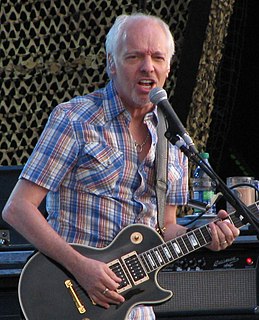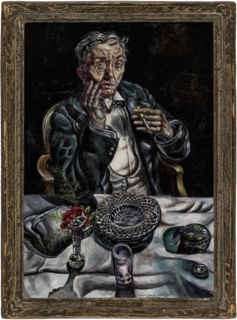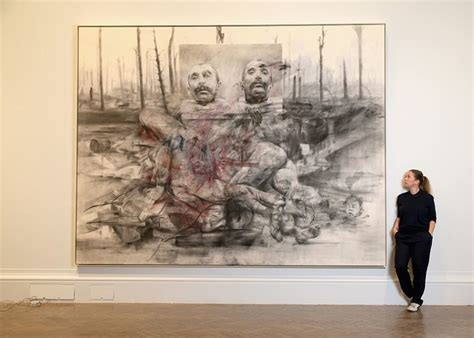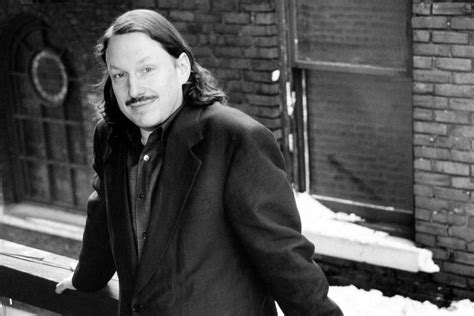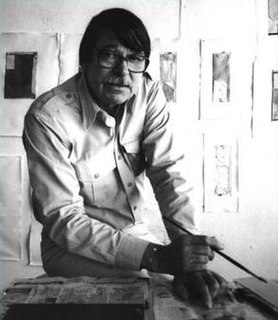A Quote by Pierre Soulages
I never want to stop painting. I'm 94 now. What's my secret? I just keep thinking about the painting I'm going to do tomorrow.
Related Quotes
I attended the High School of Industrial Arts and studied with many great artists as painting is something that you never stop learning about. Actually, in high school there was a time that I was thinking about just concentrating on painting and I asked my music teacher, Mr. Sondberg, for advice and he encouraged me to stick with the music as well. So all my life I have been singing and painting.
All that stuff about flatness - it's this idea that painting is a specialized discipline and that modernist painting increasingly refers to painting and is refining the laws of painting. But who cares about painting? What we care about is that the planet is heating up, species are disappearing, there's war, and there are beautiful girls here in Brooklyn on the avenue and there's food and flowers.
There are absences, but there are also presences. It's about how painting can evolve its own abstractions. I didn't know the painting was going to be about that, but it has to have that journey; I have to learn something, I have to end up somewhere I didn't expect to be, otherwise, I don't think it's painting.
I thought I was going to be able to use my painting ideas as decoration on pottery, but my painting did not translate into decoration on pottery. I thought it was going to, and in fact I made, while still in school, a plate with one of my paintings on it, and that's exactly what it was, it was a plate with a painting on it. It was not a decorated plate; it was just a painting superimposed over a three-dimensional ceramic form.
I'm not anti conceptual art. I don't think painting must be revived, exactly. Art reflects life, and our lives are full of algorithms, so a lot of people are going to want to make art that's like an algorithm. But my language is painting, and painting is the opposite of that. There's something primal about it. It's innate, the need to make marks. That's why, when you're a child, you scribble.



